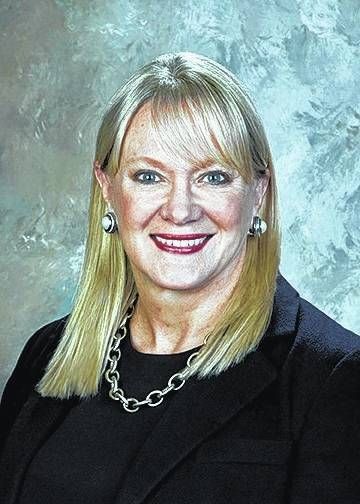Click here to subscribe today or Login.
WILKES-BARRE — The Pennsylvania Department of Banking and Securities and Pennsylvania State Police advise holiday shoppers — whether online or at brick-and-mortar stores — to be especially vigilant in protecting their financial information.
Secretary of Banking and Securities Robin L. Wiessmann and State Police Commissioner Col. Tyree C. Blocker remind consumers to be watchful for fraudulent card-skimming devices, which can be attached to ATMs, gas pumps, or other payment processing machines in retail stores. Officials also urge residents to exercise good cyber-security practices when shopping online.
Consumers can take these seven steps to protect themselves:
• Use ATMs and gas pumps in well-lit, secure locations.
• Examine the card reader slot and surrounding areas to see if anything looks out of place, mismatched, or loose.
• Consider using a credit card not linked to your bank account to avoid compromising your PIN or cash flow, and to gain other consumer protections.
• Check your bank and credit card statements frequently to watch for fraudulent activity and report any unfamiliar activity immediately.
• Look for signs of an encrypted website when providing sensitive personal information such as credit card, banking information, or SSNs online; key identifiers include an address for the website’s log-in page that begins with “https” and a padlock icon in your browser status bar.
• Do not open links or attachments in unsolicited emails from any person or vendor you do not know.
• You can also give yourself a gift this holiday season — order a free credit report from AnnualCreditReport.com at 1-877-322-8228.
Consumers can contact the Department of Banking and Securities at 1-800-PA-BANKS or 1-800-600-0007 to ask questions or file complaints about financial transactions, companies, or products.
Consumers who believe they have been victimized by card skimmers or who have other complaints can contact the Office of Attorney General’s Consumer Protection unit: 1-800-441-2555.
Pa. business groups support
US Senate tax-reform bill
Three of Pennsylvania’s pre-eminent business and manufacturing groups representing companies of all sizes and their workers are urging the U.S. Senate to pass the Tax Cuts and Jobs Act.
In a letter, the Pennsylvania Chamber of Business and Industry, the National Federation of Independent Business — Pennsylvania (NFIB-PA), and the Pennsylvania Manufacturers Association (PMA) noted the reform will encourage businesses of all sizes “to invest in their factories, expand their domestic operations, and hire more workers.”
The letter goes on to state the legislation helps hard-working families and individuals by simplifying the tax code while “delivering significant direct tax rate relief.”
“The Tax Cuts and Jobs Act will cut taxes for Pennsylvania families and will accelerate economic growth while turning one of the world’s worst business tax codes into one of the best,” said U.S. Sen. Pat Toomey, R-Lehigh Valley. “This will mean significant new investment, business expansion, and new business start-ups, leading to more jobs, higher wages, a better standard of living for more Pennsylvanians. I greatly appreciate the support from the Pennsylvania Chamber, NFIB-PA, and PMA for this legislation.”
LIFE program for Pa. seniors
celebrates its 20th anniversary
The Department of Human Services this week recognized the 20th anniversary of the Living Independence For the Elderly (LIFE) program in Pennsylvania. LIFE provides services to more than 6,000 Pennsylvanians in 41 counties.
“The Wolf Administration is committed to serving people in the community, and LIFE is an option that allows older Pennsylvanians to live independently while receiving services and support that meet the health and personal needs of the individual,” said DHS Acting Secretary Teresa Miller in a news release. “We celebrate this program for its 20 years of contributing to the quality of life of the seniors in our commonwealth.”
LIFE was established by the Balanced Budget Act of 1997 and is known nationally as the Program of All-Inclusive Care for the Elderly (PACE).
All of the PACE providers in Pennsylvania have “LIFE” in their name. The first LIFE program agreements were signed in 1997 with services implemented in Pennsylvania in 1998.
Some of the many services available under the LIFE program include dental care, meals, medical and non-medical transportation, nursing care, personal care, social services, recreational activities, and more. LIFE also fully integrates Medicare and Medicaid services for individuals eligible for both programs.
To locate a LIFE provider in your area, call the toll-free helpline at 1-844-824-3655 (TTY 1-833-254-0690).
For more information on LIFE, visit www.dhs.pa.gov.
DEP to help teach students
more about environment
More Pennsylvania students will know the watershed they live in and take action to protect freshwater resources. That’s the goal of a new statewide K-12 environmental education task force in which the Department of Environmental Protection (DEP) plays a lead role.
“Many people don’t know what a watershed is,” said DEP Secretary Patrick McDonnell. “We’re excited to collaborate with environmental education leaders statewide to help change that, starting with young students. The earlier people learn how human actions affect their local network of streams and rivers, the better our chances of preventing and reducing water pollution.”
The 20-member Pennsylvania Watershed Education Task Force is funded by a $300,000 grant from the Chesapeake Bay Program Office of the National Oceanic and Atmospheric Administration.
The Stroud Water Research Center heads the task force. DEP is joined by the Pennsylvania Department of Education, Pennsylvania Association of Environmental Educators, Pennsylvania Bureau of State Parks, and Millersville University on the leadership team.
The task force will work to improve students’ watershed education and stewardship, and increase environmental literacy in general by:
• Training approximately 400 traditional and non-traditional educators.
• Developing environmental literacy-focused partnerships and a network of watershed education providers.
• Increasing the number of NOAA Bay Watershed Education and Training grant proposals.
• Supporting and delivering meaningful educational programming, and providing local, hands-on watershed learning experiences.
The task force held its first meeting Nov. 17 at the Millbrook Marsh Nature Center in State College.








